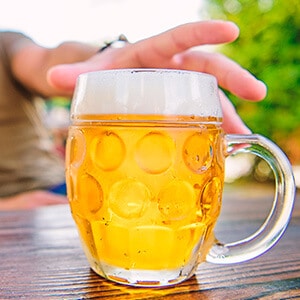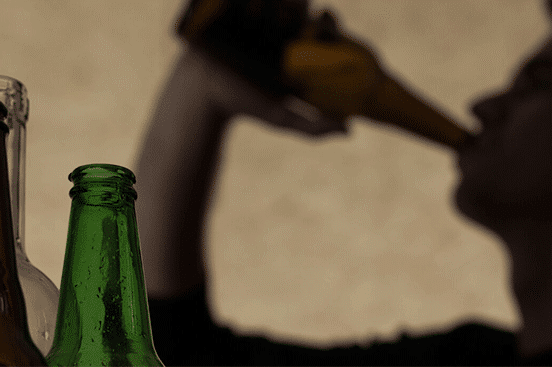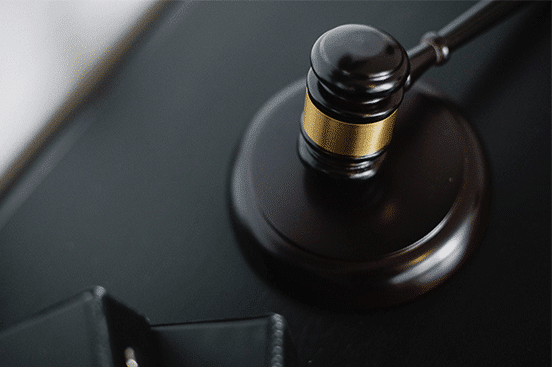Arizona’s Minor In Possession Charge
ARS 4-244(9)
Under Arizona law, it’s generally illegal for anyone under twenty-one to possess alcohol. Under the minor in possession statute, you can be prosecuted for simply possessing alcohol, even when it hasn’t been opened. That’s because an MIP citation doesn’t require proof of consumption; it only requires proof of possession. Whether your holding case of beer, glass of wine, or bottle of liquor, you can be charged with MIP. ARS 4-244(9) reads that “it’s unlawful… for a person under the legal drinking age to buy, receive, have in the person’s possession or consume spirituous liquor.” This criminal charge is common in Arizona’s Criminal Courts—especially in Tempe, Scottsdale, Tucson, and Chandler.
Contact Tobin Law Office
Affordable, Local, Top Rated Criminal Defense Lawyer
Leading Representation for Minors in Possession Charges in Arizona
What Does Possession Mean In MIP Cases?
Arizona law recognizes different types of possession. Actual Possession is where you knowingly had direct physical control over alcohol. This might be where alcohol is found in your hand, clothing, or a bag you’re carrying. Constructive Possession means the defendant knowingly exercised dominion or control over it, either acting alone or through another person. Under this theory, there might be alcohol in a dorm, house, bedroom, bar, restaurant, or car. While you can be charged under a constructive possession theory, it’s usually harder for the prosecutor to prove due to plausible explanations.
Possession of alcohol can be sole or joint. Sole possession means, acting alone, you had possession of alcohol. Joint possession means that you shared possession with one or more individuals. The joint possession theory can be harder to prove because the others represent reasonable doubt.





Understanding MIP Penalties In Arizona
Top-Rated MIP Defense Attorneys Helping You Understand AZ Law

Penalties for Arizona’s Minor in Possession Law
Under ARS 4-246(B), minor in possession is specifically designated a class one misdemeanor. As a class 1 misdemeanor, the maximum penalties are 180 days in jail, 3 years of probation, and up to $4575 in fines and surcharges. A more common sentence–especially for first or second time offenders—is probation with fines, alcohol treatment, and community service. While jail is unlikely, a permanent criminal conviction is a genuine concern. That’s because Arizona doesn’t have expungement.
Penalties a Judge Can Impose in MIP Cases:
- Permanent criminal conviction
- Alcohol counseling and classes
- Up to 180 days in jail
- Up to 3 years of probation
- $4,575
- Community service.
- Restitution
- Under A.R.S. 4-246(D) “…the court may suspend the privilege to drive of a person who is under eighteen years of age for a period of up to one hundred eighty days on receiving the record of the person’s first conviction for a violation of section 4-244, paragraph 9.”
When faced with these penalties and consequences, having a chandler defense attorney guide you through your criminal case ensures rights are protected and consequences are minimized. If there is an avenue for a dismissal or acquittal, it be discussed, addressed, and sought.

Exceptions to Arizona’s Minor in Possession Law
There are a few exceptions to the MIP statute. Pursuant to ARS 4-226(3)(a), minors can have alcohol for medicinal purposes. In addition, under ARS 4-226(4) and ARS 4-249, minors can have alcohol for religious purposes. Under either exception, the alcohol cannot endanger the health or safety of the public. Our office finds that these exceptions rarely come up in criminal cases.

Collateral Consequences to Underage Drinking
MIP convictions might negatively impact applications, scholarships, financial aid, employment, extra-curricular activities, campus housing, and more. Many colleges, and related-programs, have their own administrative rules for alcohol violations.

Tempe, ASU, Scottsdale, and Chandler Courts
Most MIP cases arise out of Tempe, ASU, and Scottsdale. When cited by Arizona State University Police, the underage drinking case is often held at the University Lakes Justice Court or Kyrene Justice Court. Both justice courts are inside the San Tan Regional Court Center in downtown Chandler. When cited by Tempe Police, the case will likely be at the Tempe Municipal Court next to the Tempe Police Station. Scottsdale police cite MIP cases into the Scottsdale City Court.

Is there a Jury in Minor in Possession Cases?
No. Defendants cannot get a jury trial for MIP. Instead, the case is litigated before, and decided by, a single judge. While you face up to one hundred eighty days in jail, Arizona Courts don’t think that’s significant enough to justify a jury trial. See Raye v. Jones (Ariz. App. 2003).
Common Defenses To Minor In Possession Charges
Most Used MIP Charges Defenses Used In Court
Constitutional Violation
The constitution protects against unreasonable police conduct. The law prohibits unreasonable searches, arrests, detainments, and coercive questioning. The government must have a warrant unless there’s a specific exception supported by detailed information. If any government agent violates these rights, a criminal charge can be challenged, suppressed, and dismissed. Common violations include illegal detainment, unsupported reasonable suspicion, Miranda violations, coerced statements, and lack of probable cause.

Statutory Exceptions
Exceptions to Minor in Possession laws includes legitimate medical or religious reasons for possession.
Fruit of the Poisonous Tree
Any evidence or testimony that comes from unconstitutional government conduct cannot be used at trial. Thus, once a violation occurs, any evidence discovered thereafter cannot be used against you.

No Criminal Intent
Possession law requires knowledge of what you possess. The prosecutor must prove that you knew an item contained alcohol.
Alcohol Belongs to Someone Else
When alcohol is discovered among two or more individuals, there may be doubts as to who it belongs to.


Mere smell of Alcohol
The mere smell of alcohol, alone, is not sufficient to prove an MIP charge. The smell of alcohol on clothing and companions are reasonable explanations, among others
Only an Admission
An out-of-court confession, alone, is insufficient. While the government may present a confession as an exception to hearsay, it must produce corroborating evidence.


Mere Presence
A person’s mere presence at a bar or party is insufficient. There must be direct or circumstantial evidence you knew about alcohol and that you exercised dominion or control over it
Testimonials
Read Reviews for Our AZ MIP Defense Attorneys
Extremely helpful
“Mr. Tobin was professional and made sure I was well aware of the entire process. He helped me to get the best possible solution! Also, Mr. Tobin and his staff was extremely helpful with allowing me to complete payment plans for my court fees. Overall, I'm extremely satisfied with having chosen Mr. Tobin to represent me!” — Jocispeaks P.
I am overly pleased
“Indeed! This is as good as it gets, I called many law offices and none were as attentive as what Mr. Tobin and his office staff were. Right from the start his concern was apparent, answered all of my questions explained everything in detail, kept in constant contact with me always returning my calls and emails and leaving no stone unturned. I am overly pleased with Mr. Tobin's legal services, he goes above and beyond to get the best possible outcome for his client.” — Christina R.
Most professional and communicative lawyer
“Tim is one of the best experiences with an attorney I could ask for. Not only were we able to get a favorable judgement, but his fees are extremely reasonable and would recommend him without hesitation. He is one of the most professional and communicative lawyers I've had the pleasure meeting. 5/5 would hire again.” — Lorenzo E.
Arizona’s Most Trusted Minor in Possession Attorneys
Alcohol Diversion or Deferred Prosecution May Provide an Opportunity to Avoid a Permanent Conviction
Most criminal courts have alcohol diversion for those with a limited criminal history. These programs require anywhere from an eight-hour class to a three-month program. Diversionary programs include fees because they’re run by outside providers that contract with the government. Of course, some of that money is coming back to government agencies. We often guide clients in gaining acceptance into an alcohol diversion program. Diversion can be highly beneficial. If you complete diversion, or deferred prosecution, the underlying charge is dismissed and any plea is set aside. So long as program requirements are successfully completed, the minor in possession charge is permanently dismissed with no conviction. In some circumstances, a Defendant can complete the program while living outside Arizona. We can sometimes handle an MIP case without the client ever returning.
Contact Us for Free Minor in Possession Consultation
Contact Tobin Law Office by Phone, Email, or Text for a Free Consultation with Mr. Tobin on Minor in Possession of Alcohol or MIP charges.
It’s important to understand your rights and options when going into an MIP case. With the help and guidance of an experienced Tempe Criminal Attorney, you can get into diversion, reduce the charges and penalties, seek a dismissal, or fight for an acquittal at trial. In most cases, Tobin Law Office and our affordable Arizona defense attorneys can handle and MIP for you so that you never need to set foot in the courtroom.

Tobin Law Office
3100 W Ray Rd #201
Chandler, AZ 85226
1910 S Stapley Dr #221
Mesa, AZ 85204
Email: tim@tobinlawoffice.com
Website: tobinlawoffice.com














